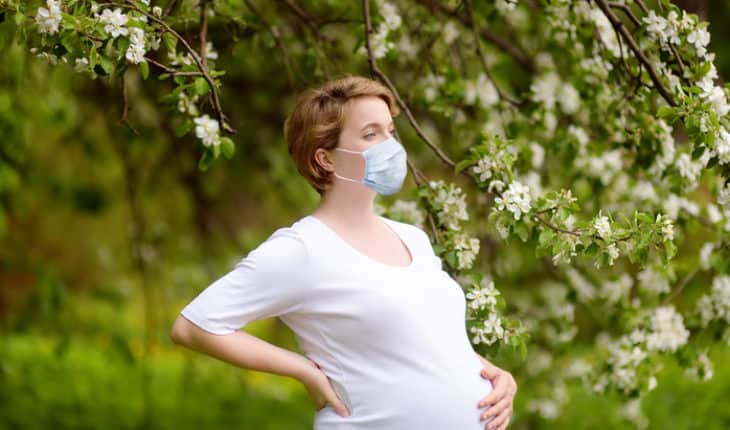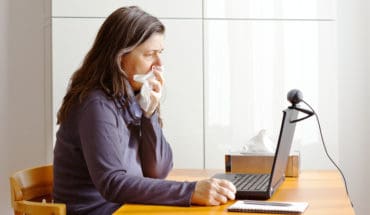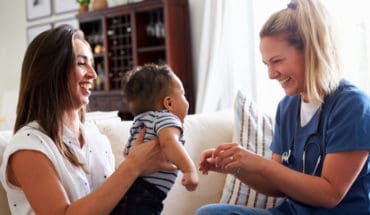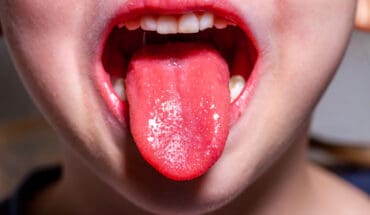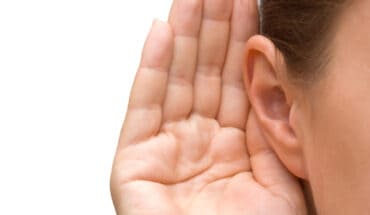All information is from trusted sources, notably the Royal College of Obstetricians and Gynaecologists, NCT, Lullaby Trust, NHS and Government guidance.
What effect does coronavirus have on pregnant women?
Generally, pregnant women do not appear to be more likely to be seriously unwell than other healthy adults if they develop the new coronavirus. The majority of pregnant women may experience only mild or moderate cold/flu like symptoms.
According to the Chief Medical Officer on 16th March 2020, pregnant women are in the vulnerable group. This means you must strictly reduce social contact through social distancing measures.
Officials decided to include pregnant women in the vulnerable category to be cautious. Despite pregnant women being no more likely to contract coronavirus than the general population. Pregnancy in a small proportion of women can alter how your body handles severe viral infections. Consequently, it is possible that being pregnant could make you more vulnerable to contracting the disease.
What effect will coronavirus have on my baby if I have the infection?
As this is such a new virus, we are just beginning to learn about it. There is no evidence to suggest an increased risk of miscarriage.
It is thought to be likely that a mother can transmit the illness to their baby during pregnancy or birth (vertical transmission). Although there have only been two documented cases and in both of these the babies and mothers made a full recovery. There have been many more cases from infected mothers where the babies were not born with virus.
Given current evidence, it is unlikely that if you have the virus it would cause problems with the baby’s development, and none have been observed currently. Some mums in China who had Covid19, did give birth pre-term. However, it is unclear if this was due to the doctors inducing labour out of concern for the mother’s well-being.
The UK is now conducting near-real-time observation and study of all women who develop COVID-19 during pregnancy and their newborn babies. They are doing this using well-established systems already used by all maternity units.
What can I do to reduce the risk of myself or my baby contracting covid-19?
The most important thing to do is to follow government guidance and self-isolate. Keep informed about the symptoms and any new advice. For pregnant women and the rest of their households, this includes:
- Staying at home, except from exercising once a day – but stay at least 2 metres (3 steps) away from other people
- Not go out to buy food or collect medicine – order them by phone or online, or ask someone else to drop them off at your home
- Not have visitors, such as friends and family, in your home
- Ventilate rooms in the house by opening a window
- Separate yourself from other members of their household as far as possible, using their own towels, crockery and utensils and eating at different times
- Use friends, family or delivery services to run errands, but advise them to leave items outside.
- Regular hand washing
- Use a tissue when you or anyone in your family coughs or sneezes, discard this and wash your hands
- Avoid contact with anyone who is displaying symptoms of coronavirus. These symptoms include high temperature and/or new and continuous cough
- Keep in touch using remote technology such as phone, internet, and social media
- When travelling, avoid using public transport if at all possible
- Once the baby is here, remain isolated to protect your new-born from possible infection.
What impact will a pandemic and a strained NHS have on my pregnancy?
The NHS is working to ensure that all women receive support and care throughout pregnancy, birth and the period afterwards during this pandemic, as there will be extra pressures on healthcare services.
The RCOG is helping maternity units to ensure safe care. This includes reducing staff commitments outside maternity units, reducing any non-essential work within Trusts and re-organising staffing in obstetrics and gynaecology services.
Maternity units are increasingly providing consultations on the phone or by video link, when this is appropriate, so you do not have to travel unnecessarily to the hospital. However, some in person visits with a midwife may be necessary and it is important for the wellbeing of you and your baby that you attend these to have routine checks.
What do I do if I feel unwell or I’m worried about my baby during self-isolation?
Pregnant women who are self-isolating must not to attend maternity units or A&E unless in need of urgent pregnancy or medical care.
If you have concerns about the wellbeing of yourself or your unborn baby during your self-isolation period, contact your midwife or, if out-of-hours, your maternity team or phone 111 and tell them you are pregnant. They will provide further advice, including whether you need to attend hospital.
If you must go to the maternity unit or hospital, pregnant women should travel by private transport, or arrange hospital transport, and alert the maternity unit reception once on the premises, before going into the hospital.
Giving birth
As a precautionary approach, due to the increased pressures on the emergency services, home births are not favourable.
It is likely that you will be put on continuous foetal monitoring to check how your baby is coping with labour.
There is currently no evidence to suggest you cannot give birth vaginally or that you would be safer having a caesarean birth if you have suspected or confirmed coronavirus.
However, if your breathing suggests that your baby needs to be born urgently, you should consider a caesarean birth.
It is not recommended that you give birth in a birthing pool in hospital if you have suspected or confirmed coronavirus, as the virus can sometimes be found in faeces. This means it could contaminate the water, causing infection to pass to the baby. It may also be more difficult for healthcare staff to use adequate protection equipment during a water birth.
There is no evidence that women with suspected or confirmed coronavirus cannot have an epidural or a spinal block. Earlier guidance from the RCOG suggest that the use of Entonox (gas and air) could increase aerosolisation and spread of the virus. However, further review suggested there was no evidence that Entonox increased risk of viral spread.
If you go into labour during covid19 self-isolation, whilst still infectious, you should call your maternity unit for advice, and inform them that you have a suspected or confirmed coronavirus infection.
If you have mild symptoms, you should remain at home (self-isolating) in early labour, as usual practice.
Arriving at the hospital:
When you and your maternity team decide you need to attend the maternity unit, general recommendations about hospital attendance will apply:
- Attend hospital via private transport where possible, or call 111/999 for advice, as appropriate
- You will be met at the maternity unit entrance and provided with a surgical face mask, which will need to stay on until you are alone in a suitable room
- Coronavirus testing will be in place
- One birth partner will be able to stay with you throughout, providing they are well. If they are unwell, you will need to choose an alternative birth partner.
After the birth, is there any increased risk to me or my baby?
There is no evidence that women who have recently had a baby and are otherwise well, are at increased risk of contracting coronavirus or of becoming seriously unwell. You should however remain well-nourished with a balanced diet. Take mild exercise as you feel fit and ensure social distancing guidance is followed.
Children, including newborns, are not currently thought to be at higher risk of becoming seriously unwell with the virus. Although a study in China suggested that babies under a year had a slightly higher chance of experiencing more serious symptoms than older children, but only 2% were critical.
However, hygiene is incredibly important and particularly when there are other family members resident in the house. Anyone entering your home should wash their hands thoroughly. Stay clear of the baby if they have symptoms of any illness including coronavirus. If there is still a lock-down then you should not be receiving any visitors.
It is important that the baby is feeding well and gaining weight and if you have any concerns please contact your midwife. When restrictions lift, we would caution against large family gatherings to celebrate baby’s arrival until more is known about the spread of the virus.
Do not put off seeking medical advice if you have concerns about your baby’s health during the pandemic. Seek medical advice if your baby has a fever, lethargy, irritability, poor feeding, or any other symptoms you may have concerns about.
Will I be able to breastfeed my baby if I have suspected or confirmed coronavirus?
Yes. There is no evidence showing that the virus can carry in breastmilk. The well-recognised benefits of breastfeeding outweigh any potential risks of transmission of coronavirus through breastmilk.
The main risk of breastfeeding is close contact between you and your baby. If you cough or sneeze, this could contain droplets infected with the virus that could infect your baby.
A discussion about the risks and benefits of breastfeeding should take place between you and your maternity team.
This guidance may change as knowledge evolves.
If you are unwell:
- Wash your hands before touching your baby, breast pump or bottles
- Try to avoid coughing or sneezing on your baby while feeding at the breast
- Consider wearing a face mask while breastfeeding, if available
- Follow recommendations for pump cleaning after each use
- Consider asking someone who is well, to feed your expressed breast milk to your baby.
If you choose to feed your baby with formula or expressed milk, it is recommend that you follow strict adherence to sterilisation guidelines.
Will my baby receive a test for coronavirus?
You may worry you have confirmed or suspected coronavirus when the baby is born. Doctors who specialise in the care of newborn babies will examine your baby and advise you about their care. This may include testing.
Photo: Maria Sbytova/Shutterstock.com
- What is a seizure? - 13th March 2025
- Febrile Convulsions and Seizures in Children - 13th March 2025
- Why women are less likely to receive CPR or survive cardiac arrest - 6th March 2025
